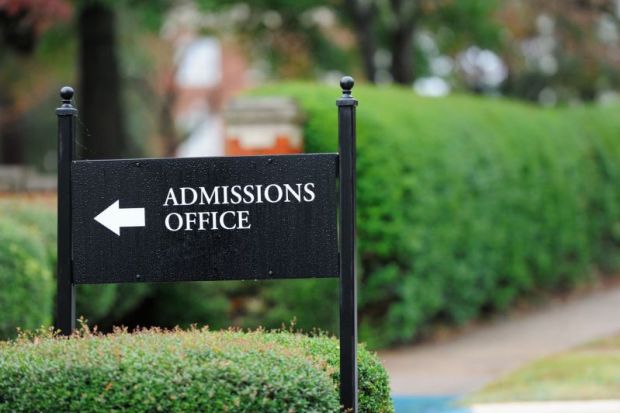A record number of UK 18-year-olds accepted offers for university courses this year, figures show, amid a significant swing towards elite institutions and declining international applications.
The Ucas end of cycle data release shows that 36.4 per cent of 18-year-olds from across the UK accepted places this year – up from 35.7 per cent in 2023 and arresting two years of falling entry rates.
The total number of accepted applicants rose 1.9 per cent, and the number of UK-domiciled 18-year-olds accepted increased 2.9 per cent to a record 279,550.
The figures will be welcomed by universities, particularly after the same data last year triggered warnings of an “inescapably weak picture of demand and entry” for the UK.
Mark Corver, co-founder of the dataHE consultancy and former director of analysis and research at Ucas, told Times Higher Education that universities will be paying close attention to such a key data set set this year.
“The headline end of cycle figures are consistent with earlier releases, with the higher success rate for UK 18 year olds enough to flip falling application rates into the rising entry rates, remaining the most important strategic signal for the sector,” he added.
Dr Corver highlighted a “remarkable” rise in record of prior acceptance (RPA) students who do not apply via Ucas in England, with growth concentrated in older age groups. The sector can also take comfort that the number of UK 18-year-olds from the most disadvantaged backgrounds who accepted a place is also at a record high.
However, the Ucas data shows a continuing trend from statistics released during clearing of top institutions hoovering up much of this year’s cohort.
Of UK 18-year-old accepted applicants, 37.9 per cent went to higher-tariff institutions – up from 34.5 per cent in 2023 and the largest annual increase since Ucas records began.
Medium-tariff providers accepted just 29.3 per cent of this cohort, which was a joint record low. And just 32.8 per cent went to the least-selective universities as a result of the largest fall on record.
Visa figures have repeatedly demonstrated the effect of the country’s ban on dependants, with international student numbers significantly down on last year.
The Ucas data, which only represents a small portion of the total market, shows that the number of international accepted applicants fell 2.3 per cent from 2023. At 69,905, this is the lowest figure in eight years.
Recent Ucas data for the coming autumn’s medicine, dentistry and veterinary courses, or to study at the universities of Oxford and Cambridge, revealed a record number of early applications from China.
The end-of-cycle figures show that Chinese students still make up a quarter of all accepted applicants from overseas, but their total number fell 1.9 per cent.
There were also declines in student numbers from the UK’s other top markets – India (14.8 per cent down), Hong Kong (8.3 per cent down) and Malaysia (1.8 per cent down).
Ucas chief executive Jo Saxton welcomed the increase in the number of UK 18-year-olds accepting places – particularly the record numbers of disadvantaged students.
“Removing barriers – both real and perceived – is an absolute priority for us, and it’s encouraging to see those numbers growing,” said Dr Saxton.
“Ucas is here to help all applicants take their next step, and I remain committed to ensuring that everyone has access to the life-changing opportunities that higher education brings.”
The figures also show that the number of UK-domiciled mature students who accepted a place grew from 106,195 in 2023 to 109,780.




